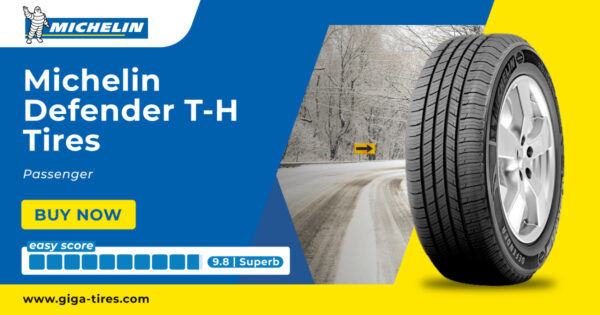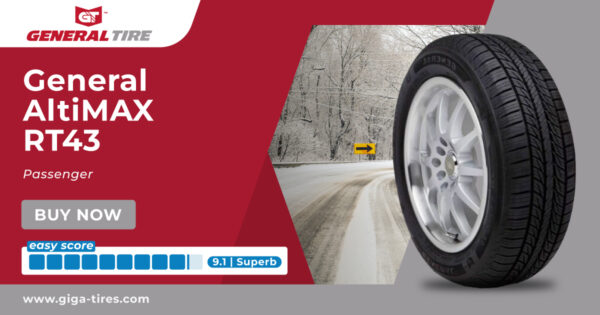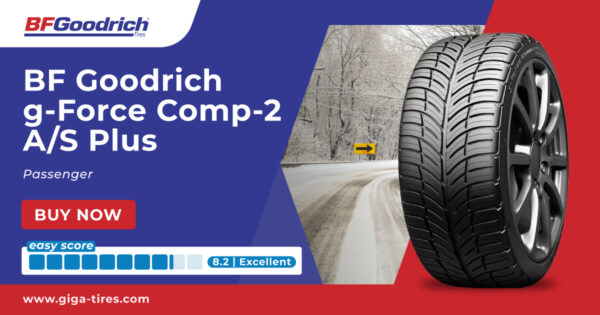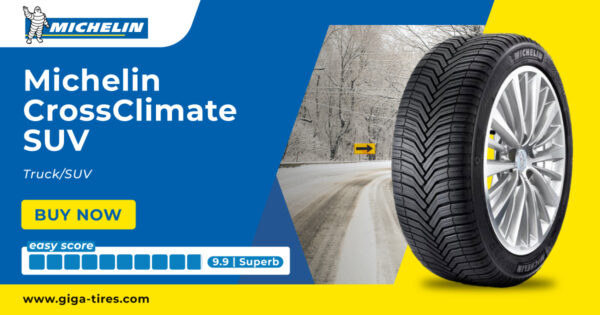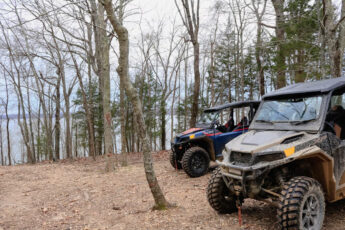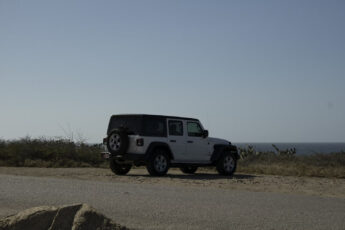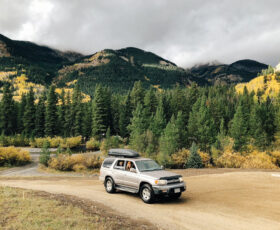Last Updated on 4 months
Maximize Your Car’s Performance with the Best All-Weather Tires
With winter on its way, it’s essential to ensure your vehicle is equipped to handle the icy and snowy conditions that come with it. The right all-weather tires can make all the difference in maintaining control and car safety in winter. This guide will help you find the best snow tires, providing top recommendations to enhance your vehicle’s tire performance in cold weather.
Key Takeaways
- Proper all-weather tires provide a balance of snow and wet traction, ensuring driver safety and control.
- Top tire brands for winter use include Michelin CrossClimate 2, BFGoodrich Advantage Control, and Pirelli Scorpion Weather Active.
- Tread pattern and tire compound contribute significantly to overall winter traction performance.
- All-weather tires balance regular driving and winter conditions, making them suitable for light to moderate snowfall.
- Consider factors like tread life, noise levels, and price when selecting the right all-weather tire for your car.
Understanding the Importance of Snow and All-Weather Tires
As winter approaches, drivers must be prepared to face winter driving conditions that can significantly impact vehicle performance and winter safety. Snow, ice, and slush create challenges for maintaining adequate road traction and control, making the selection of appropriate tires essential. This section explores the importance of snow and all-weather tires in ensuring a safer driving experience during the colder months.
While all-season tires may provide sufficient grip in regions with milder winters, they cannot perform as well as dedicated snow tires in heavy snowfall. All-weather tires offer a middle ground, combining the benefits of snow and all-season tires to cater to a broader range of driving conditions. The primary advantage of all-weather tires lies in their ability to maintain traction on diverse surfaces, ensuring better control and safety for drivers.
All-weather tires might not be specifically for snow, but they offer a middle ground capable of handling assorted seasonal scenarios.
Let’s dive deeper into the unique features of snow and all-weather tires that contribute to their superior performance and enhanced safety in winter:
- Flexible rubber compounds: The rubber compounds in snow and all-weather tires remain pliable in freezing temperatures, improving grip on icy roads.
- Specialized tread patterns: Tread patterns in snow and all-weather tires are explicitly designed to expel snow and slush from the tire’s contact patch, optimizing road traction.
- Improved braking capabilities: The enhanced grip of snow and all-weather tires results in shorter stopping distances on slippery surfaces, providing extra safety in winter driving conditions.
| Type of Tire | Best for | Limitations |
|---|---|---|
| All-season tires | Mild winters, wet conditions, dry roads | Insufficient traction in heavy snow and icy conditions |
| Snow tires | Heavy snowfall, icy conditions | Not suitable for year-round use, higher rolling resistance |
| All-weather tires | Year-round use, light to moderate snowfall, diverse road conditions | Reduced performance compared to dedicated snow or summer tires in extreme conditions |
In conclusion, understanding the distinctions between snow, all-season, and all-weather tires is crucial for navigating winter driving conditions safely and effectively. Ultimately, the choice of tires depends on each individual’s specific climate, vehicle type, and driving style. By investing in the appropriate tires, drivers can enjoy the all-weather tire benefits of improved road traction, handling, and overall winter safety.
Factors to Consider When Choosing All-Weather Tires
When selecting all-weather tires, it’s crucial to prioritize their performance in snow and ice conditions. Critical factors for optimal tire performance include treadwear ratings, grip, noise level, and all-weather tire durability. Among the popular all-weather tire options, Michelin CrossClimate 2 and BFGoodrich Advantage Control provide commendable grip, treadwear ratings, and user-reported performance in wet and cold weather.
Evaluating Tire Performance in Snow and Ice Conditions
Winter traction plays a significant role in evaluating an all-weather tire’s performance in snowy and icy conditions. Review all-weather tire comparisons to assess a tire’s snow grip, ice traction, and overall winter performance. In addition to the tire’s performance, you’ll want to consider the tire’s tread life and the daily driving conditions of your geographical area. Here’s a list of factors to consider when comparing tire performance in snow conditions:
- Traction on snow and ice
- Durability in cold temperatures
- Ride comfort
- Noise level
- Handling and braking on wet roads
The Role of Tread Patterns in Winter Traction
Proper tire tread patterns are crucial for adequate snow traction. Tires like the Michelin CrossClimate 2 and Bridgestone WeatherPeak offer treadwear ratings well-suited for all-season use and specific tread patterns designed for winter conditions. A tire’s tread pattern dramatically influences its performance on snowy and icy roads. To help you better understand the impact of tread pattern on winter tire performance, here’s a table comparing the key features of some top all-weather tires:
| Tire Model | Tread Pattern | Treadwear Rating | Road Noise Level |
|---|---|---|---|
| Michelin CrossClimate 2 | V-shaped tread pattern | 60,000 miles | Minimal |
| BFGoodrich Advantage Control | Symmetrical tread pattern | 70,000 miles | Moderate |
| Bridgestone WeatherPeak | Diagonal tread pattern | 65,000 miles | Low |
In conclusion, prioritize performance in snow and ice conditions when choosing all-weather tires. Research options such as Michelin CrossClimate 2 and BFGoodrich Advantage Control to find the best fit for your driving needs and requirements. Remember the importance of tread patterns in winter traction, and always compare tire performance in traction, durability, ride comfort, and noise level.
Top Picks for Snow and Winter Traction
Regarding top-rated all-weather tires, several standout options offer exceptional winter tire performance and snow traction. We have compiled a list of the best choices across various price points and vehicle types. These tires have garnered positive snow tire reviews, providing drivers with dependable traction and control in snow and winter conditions.
1.Michelin Defender T-H: This tire is highly rated for snow traction and boasts an impressive 85,000-mile tread life, making it a reliable long-term investment.
2.General Altimax RT43: Featuring impressive performance at a moderate cost, this tire offers excellent value for money without compromising winter traction capabilities.
3.BFGoodrich g-Force COMP-2 A/S: An ideal choice for all-wheel-drive vehicles, this tire delivers superior snow handling and wet-road driving performance.
4.Michelin CrossClimate SUV: Suitable for all-wheel-drive vehicles, this tire is known for its exceptional snow traction capabilities and overall winter performance.
Winter conditions can be unpredictable, but investing in a set of top-rated all-weather tires will keep you feeling safe and in control on the roads.
When choosing the right snow traction tires, you must consider your vehicle type, local climate, and budget. The best snow traction tires will perfectly balance performance, durability, and cost, making your winter driving experience as safe and enjoyable as possible.
| Tire Model | Vehicle Type | Snow Traction |
|---|---|---|
| Michelin Defender T+H | All Vehicles | Excellent |
| General Altimax RT43 | All Vehicles | Very Good |
| BFGoodrich g-Force COMP-2 A/S | All-Wheel Drive | Excellent |
| Michelin CrossClimate SUV | SUV and All-Wheel Drive | Outstanding |
| Vredestein Quatrac Pro | All Vehicles | Good |
Remember to pay attention to snow tire reviews, as they offer valuable insights into the real-world performance of various brands and models. Selecting the right tires for your vehicle ensures safety and control on wintry roads. By investing in the best snow traction tires available, you can maximize your vehicle’s performance and drive confidently through whatever winter may bring.
All-Weather Tires: Can They Handle the Winter?
As the winter months approach, many drivers seek out all-weather tires to ensure their snow-driving safety and avoid switching to dedicated winter tires. Despite the similarities between all-season and all-weather tires, the latter does offer critical benefits, such as more excellent snow traction and better performance in cold conditions.
Benefits of All-Weather Tires in Snowy Conditions
All-weather tires balance regular driving and winter conditions, often incorporating flexible tread compounds in cold weather. These enable them to deliver reliable snow driving safety even as conditions worsen. Highly recommended options, such as the Michelin CrossClimate series and BFGoodrich Advantage Control, boast notable performance in snowy conditions, offering a good compromise for those not wanting to change to dedicated winter tires.
All-weather tires like the Michelin CrossClimate and BFGoodrich Advantage Control are designed to provide a reliable middle ground between all-season and dedicated winter tires, offering year-round use with improved performance in snowy conditions.
Distinguishing Between All-Season and All-Weather Tires
Though both are designed for year-round use, all-weather tires stand out for their better snow traction than their all-season counterparts. This advantage arises from their specialized tread patterns and rubber compounds that maintain flexibility in lower temperatures, making them a more reliable option for light to moderate snowfall.
- All-weather tires: Enhanced traction in snow, flexible tread compounds in colder temperatures, and specialized tread patterns
- All-season tires: Suitable for mild weather changes but not optimized for winter performance
When selecting winter-ready tires, key factors include traction, tread life, noise levels, and overall cost. As tire technology evolves, drivers can expect even better performance from their all-weather tires, ensuring a safer and more controlled experience on winter roads.
Expert Reviews: Best All-Weather Tires for Snow
Experts and automobile enthusiasts have weighed in on their experiences and assessments of the best all-weather tires for snow. To provide a comprehensive view of the options available, we’ve combined expert opinions with customer feedback, clearly understanding the top all-weather tires on the market.
Two standout options dominating the conversation for their exceptional performance in snowy conditions are the Michelin CrossClimate series and BFGoodrich Advantage Control. Let’s take a closer look at these recommendations and their key features.
- Michelin CrossClimate series: Known for their superior grip and long-lasting treadwear, these tires offer outstanding performance in snowy and wet conditions. The unique tread pattern and rubber compound provide solid traction on snow and ice, ensuring a safe and comfortable driving experience.
- BFGoodrich Advantage Control: This tire has gained attention for its excellent value and performance in varying weather conditions. BFGoodrich Advantage Control is a solid choice for those seeking a versatile all-weather tire that provides reliable snow traction and an impressive wet grip.
These all-weather tires have garnered favorable reviews from experts and consumers alike. To provide a better understanding of their performance and features, here’s a detailed comparison:
| Features | Michelin CrossClimate series | BFGoodrich Advantage Control |
|---|---|---|
| Durability | Long-lasting tread life with good treadwear ratings | Reliable performance with reasonable tread life |
| Snow Traction | Outstanding grip on snow and ice | Adequate traction in snowy conditions |
| Wet Traction | Strong hold on wet roads; reduced hydroplaning risk | Impressive damp grip and hydroplaning resistance |
| Noise Level | Reasonably quiet and comfortable ride | Average noise output |
| Value for Money | Higher initial cost, but pays off in long-term benefits | Competitively priced with excellent performance |
“After researching the best all-weather tire options, I ultimately chose the Michelin CrossClimate for my sedan. They’ve significantly improved my driving experience in winter conditions, and I have complete confidence in their ability to keep me safe on the road.”
– Auto enthusiast and Michelin CrossClimate user
In conclusion, expert reviews and consumer feedback have identified the Michelin CrossClimate series and BFGoodrich Advantage Control as top contenders for the best all-weather tires for snow. These recommendations provide drivers with reliable, high-performance tires that are proven to perform well in even the most challenging winter conditions. Regarding tire performance evaluations, these options deliver on their promises of durability, traction, and overall performance, ensuring a safe and comfortable driving experience.
Optimizing Tire Performance: Maintenance Tips for Winter
During the winter months, it is vital to maintain proper care for your all-weather tires to optimize their performance and ensure longevity. By following these tire maintenance tips, you can keep your vehicle running smoothly and safely in any winter condition.
First and foremost, it is essential to routinely check your tire pressure and tread depth. Cold weather can cause the air pressure in your tires to drop, affecting their grip and winter tire performance. Monitor your tire pressure weekly and adjust it according to the manufacturer’s recommendations to maintain optimal traction.
Alongside regular inspections, tire rotation and balancing play a crucial role in all-weather tire care throughout the colder months. Rotating your tires helps distribute wear evenly and prolongs their tread life, while balancing ensures a smooth and comfortable ride.
Remember, rotating and balancing your tires every 5,000 to 8,000 miles is key to maintaining their performance and safety. Consult your vehicle owner’s manual or consult a professional mechanic for personalized advice.
A regular visual examination of your tires is also necessary to identify potential issues such as cracks, cuts, or punctures. Promptly address problems and replace damaged tires to maintain a safe driving experience.
- Check tire pressure weekly and adjust accordingly.
- Monitor and maintain proper tread depth.
- Rotate and balance tires every 5,000 to 8,000 miles.
- Perform regular visual inspections for signs of damage.
By practicing these tire maintenance tips, you can enhance the performance and safety of your all-weather tires during winter, ensuring that your vehicle remains reliable and stable on snowy and icy roads.
Cost Versus Value: Investing in the Right Winter Tires
The right all-weather tires can make all the difference in ensuring your safety and maintaining control in winter conditions. One important aspect of tire selection is balancing quality and affordability. So, what factors should you consider when evaluating all-weather tire pricing, determining the overall investment in winter tires, and selecting cost-effective snow tires?
Understanding the Pricing of Snow and All-Weather Tires
As with any product, the pricing of snow and all-weather tires can vary greatly depending on the tire’s brand, quality, and features. Higher-end brands like Michelin CrossClimate tend to have a higher initial cost. However, their longevity and performance across various weather conditions can justify the expense over time.
Average costs for standard tire sizes hover around $200 per tire, but a vast range of prices is available to suit different budgets. To help you make an informed decision, let’s compare some popular all-weather tire options in terms of both cost and performance:
| Tire Model | Average Price Per Tire | Tread Life | Winter Performance |
|---|---|---|---|
| Michelin CrossClimate | $200 | Long | Excellent |
| BFGoodrich Advantage Control | $150 | Long | Very Good |
| General Altimax RT43 | $100 | Medium | Good |
“A great tire isn’t just about the price you pay today, but the value you receive over the long term.” – Anonymous Tire Expert
Remember that upgrading to a more expensive tire can offer benefits such as longer tread life, improved snow and ice traction, and better overall performance. It is essential to weigh the immediate costs against the long-term value before deciding.
- Consider the average lifespan of the tire and how often you plan to replace it.
- Evaluate the tire’s performance across various weather conditions, including snow, ice, and wet roads.
- Factor in additional safety features or technologies that may justify a higher price.
In conclusion, investing in the right winter tires involves carefully considering your budget, performance requirements, and long-term value. Doing so can ensure you make the best vehicle and road safety decisions this winter.
Best All-Weather Tires for SUVs and Crossovers
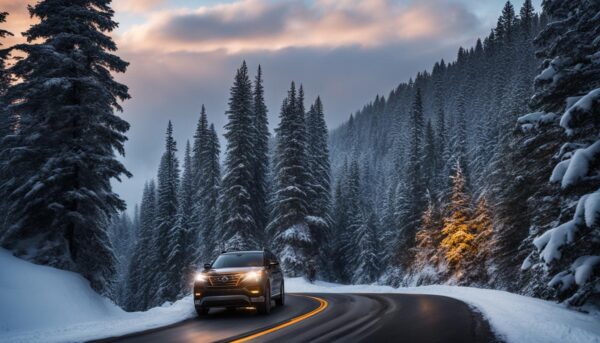
Finding the perfect all-weather tires for SUVs and crossovers can be overwhelming due to the vast range of options in the market. SUVs and crossovers are known for their impressive handling capabilities and often require tires explicitly designed for their size and power. In this section, we evaluate three top choices of all-weather tires tailored for these larger vehicles:
- Pirelli Scorpion Weather Active
- Michelin CrossClimate SUV
- Continental VikingContact 7
Each tire offers excellent grip and traction, ensuring safety and smooth handling in various driving conditions. However, it is essential to consider factors like price, size availability, and durability when making a final decision.
Table 1: Comparison of Top All-Weather Tires for SUVs and Crossovers
| Tire Model | Price Range (per tire) | Size Availability | Performance Features |
|---|---|---|---|
| Pirelli Scorpion Weather Active | $150-$300 | 17″-22″ | Superior grip on wet and snowy roads, noise reduction technology, and long-lasting performance |
| Michelin CrossClimate SUV | $170-$320 | 16″-21″ | Optimized tread pattern for wet and snow performance, excellent braking capabilities, and long tread life |
| Continental VikingContact 7 | $110-$250 | 15″-20″ | Highly flexible tread compound, hydroplane resistance, and reduced braking distances on wet, icy, snow-covered roads. |
In conclusion, selecting the best crossover winter and top SUV snow tires is crucial for optimum handling, safety, and performance in harsh driving conditions. Considering the performance features and budget requirements, Pirelli Scorpion Weather Active, Michelin CrossClimate SUV, and Continental VikingContact 7 are top contenders to upgrade your SUV or crossover for a safe winter driving experience.
Safety First: How the Right Tires Can Save Lives in Winter Conditions
Winter driving safety is a top priority, especially when navigating snowy and icy roads. The proper tire selection ensures safety, directly affecting a vehicle’s traction and control. Tires with adequate winter performance ratings, such as Michelin CrossClimate or Pirelli Scorpion Active, significantly prevent accidents during the colder months.
Proper tire safety in snow goes beyond just picking a top-rated all-weather tire; it also involves understanding the key factors to consider when selecting a tire. These factors include:
- Tread design for optimal snow and ice traction
- Rubber compound formulated to stay flexible in cold temperatures
- Load capacity and durability for harsh winter conditions
Life-saving all-weather tires provide exceptional grip on snow and ice and perform admirably in wet and dry conditions. The versatility of these tires helps drivers maintain control over their vehicles in various weather situations, reducing the likelihood of accidents.
It is important to remember that even the best all-weather tires cannot replace cautious driving and proper vehicle maintenance during winter. Being prepared and vigilant when driving in difficult conditions can further enhance the safety provided by all-weather tires. Some vital winter driving tips include:
- Maintaining a safe distance from other vehicles
- Moving at a slower speed on slippery roads
- Applying the brakes gently to prevent skidding
- Regularly checking tire pressure and tread depth
“The safety of our loved ones and ourselves should always be a top priority when making tire choices. Investing in quality all-weather tires with excellent winter performance ratings will not only provide peace of mind but could also save lives during winter driving.”
In conclusion, the proper tire selection directly influences winter driving safety. Tires with adequate winter performance ratings, such as Michelin CrossClimate and Pirelli Scorpion Active, are essential for controlling and preventing accidents in snowy and icy conditions. Combined with careful driving habits and regular vehicle maintenance, all-weather tires can significantly contribute to overall road safety during the winter months.
Latest Technological Innovations in Snow and All-Weather Tires
As tire manufacturers continue to innovate, several advancements in snow tire technology and all-weather tire innovations have emerged, enhancing the performance and longevity of these tires. This progress benefits popular brands like the Michelin X-Ice series and Bridgestone Blizzaks, improving their winter performance and offering better ice traction and hydroplaning resistance. The leading tire developments stem from enhanced material composition, progressive tread design, and increased durability.
Material composition improvements involve using advanced rubber compounds, enabling the tire to maintain flexibility and grip in cold temperatures. Additionally, manufacturers have made strides in incorporating silica compounds and innovative polymers that preserve traction in wet conditions and increase overall tire life.
“Technological advancements in snow and all-weather tire developments have impacted their performance in various aspects, such as improved material composition, innovative tread designs, and overall durability.”
Regarding the tread design, the latest innovations focus on providing a more aggressive pattern, specifically improving grip and traction in winter conditions. Designed to push slush and snow away effectively, these enhanced patterns also facilitate better water evacuation, reducing the risk of hydroplaning incidents on wet roads.
Furthermore, the durability of modern snow and all-weather tires has seen significant enhancement, extending their lifespan and providing better value to consumers. These advancements can be attributed to the optimized rubber compounds and advanced manufacturing technologies.
- Improved Material Composition: Advanced rubber compounds, silica compounds, and innovative polymers.
- Innovative Tread Design: Aggressive patterns to ensure superior grip and traction.
- Increased Durability: Optimized rubber compounds and advanced manufacturing technologies.
In summary, the latest tire developments focus on improving material composition, tread design, and durability – all aimed at enhancing the overall performance and safety of snow and all-weather tires. As technology advances, consumers can expect more innovative tire options to emerge, elevating driving safety and confidence in winter conditions.
Conclusion
In this all-weather tire selection guide, we’ve explored the importance of investing in high-quality tires to ensure maximum safety and control during winter driving. By examining factors such as traction, tread life, noise levels, and cost, you will be better equipped to decide on the best all-weather tires for your vehicle.
Our winter tire summary highlighted top-performing models like the Michelin CrossClimate series and BFGoodrich Advantage Control, which offer impressive performance in snowy conditions. Additionally, we discussed the benefits of all-weather tires regarding overall safety and their distinction from all-season tires in providing superior snow and ice traction.
As you reflect on our final thoughts on snow tires, consider the factors surrounding your tire decision, such as region-specific weather patterns and road conditions. With the ever-evolving advancements in tire technology, we can expect even better performance from winter and all-weather tires in the future. Stay safe on the road this winter season by investing in reliable, high-quality, all-weather tires for your vehicle.
FAQ
What are some of the best all-weather tires for snow?
Some top-rated all-weather tires for snow include Michelin CrossClimate 2, BFGoodrich Advantage Control, and Pirelli Scorpion Weather Active. These tires balance snow and wet traction, grip on dry roads, and durability.
What factors should I consider when choosing all-weather tires?
When selecting all-weather tires, prioritize performance in snow and ice, treadwear ratings, grip, and noise level. Tread patterns are also important, as they significantly influence winter traction performance.
How can I optimize my all-weather tire performance during winter?
To ensure optimal performance, routinely check tire pressure and tread depth. Performing tire rotations and balancing will also help extend the life of the tires and enhance safety during the winter months.
How do all-weather tires compare to all-season tires for winter driving?
All-weather tires offer better snow traction than all-season tires due to their specialized tread patterns and rubber compounds that maintain flexibility in lower temperatures. This makes them more reliable for light to moderate snowfall conditions.
What is the average cost of all-weather tires?
Prices for all-weather tires can vary based on size and brand, but the average cost is around $200 per tire for standard sizes. A range of options is available to suit different budgets.
What are some recommended all-weather tires for SUVs and crossovers?
Pirelli Scorpion Weather Active, Michelin CrossClimate SUV, and Continental VikingContact 7 provide excellent grip and traction tailored for larger vehicles. Considerations such as price and size availability are essential for the final decision.
How do the right tires contribute to winter driving safety?
Correct tire selection affects a vehicle’s traction and control on snowy and icy roads, significantly preventing accidents and ensuring driver safety during colder months.
What are some recent innovations in snow and all-weather tire technology?
Advances in tire composition, tread design, and longevity contribute to better performance in winter conditions. Tires like the Michelin X-Ice series and Bridgestone Blizzaks offer improved ice traction and hydroplaning resistance.
Source Links
- Mastering All-Weather Tires: Guide To Year-Round Safety And Performance
- Top 5 Best All-Weather Tires For Every Season




